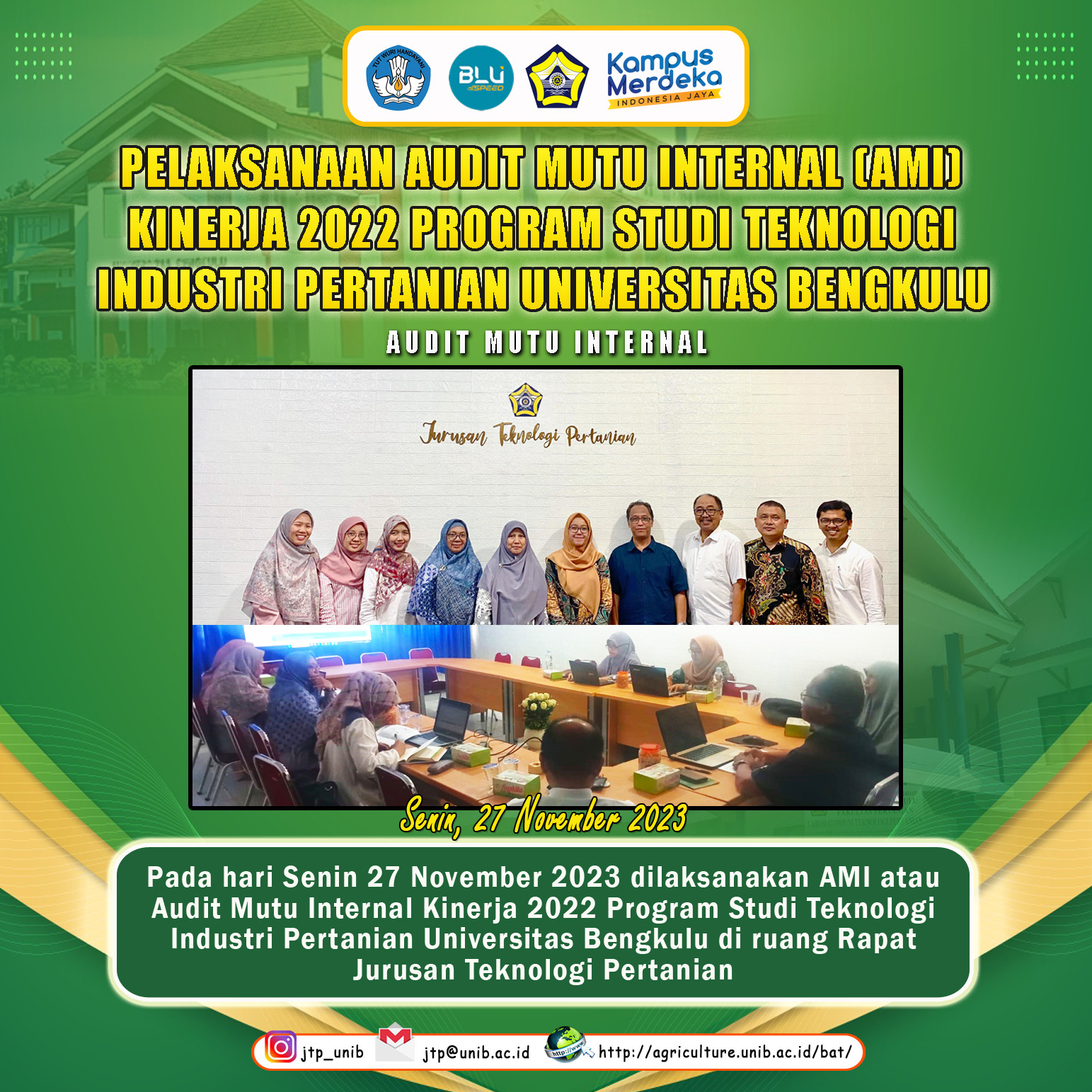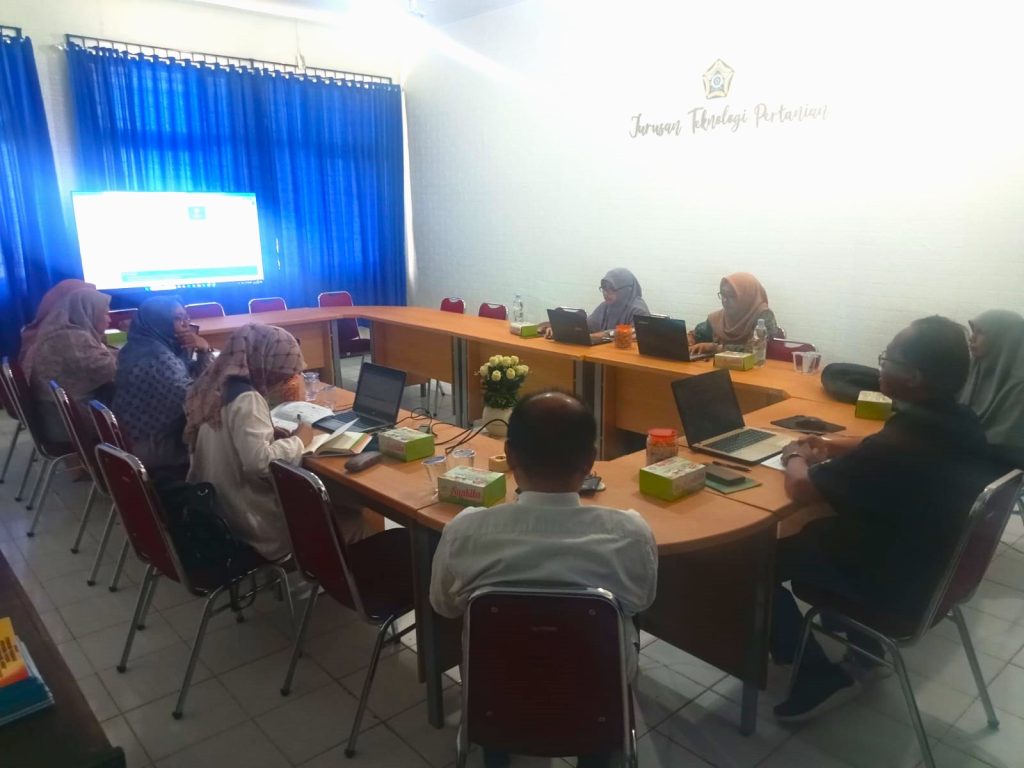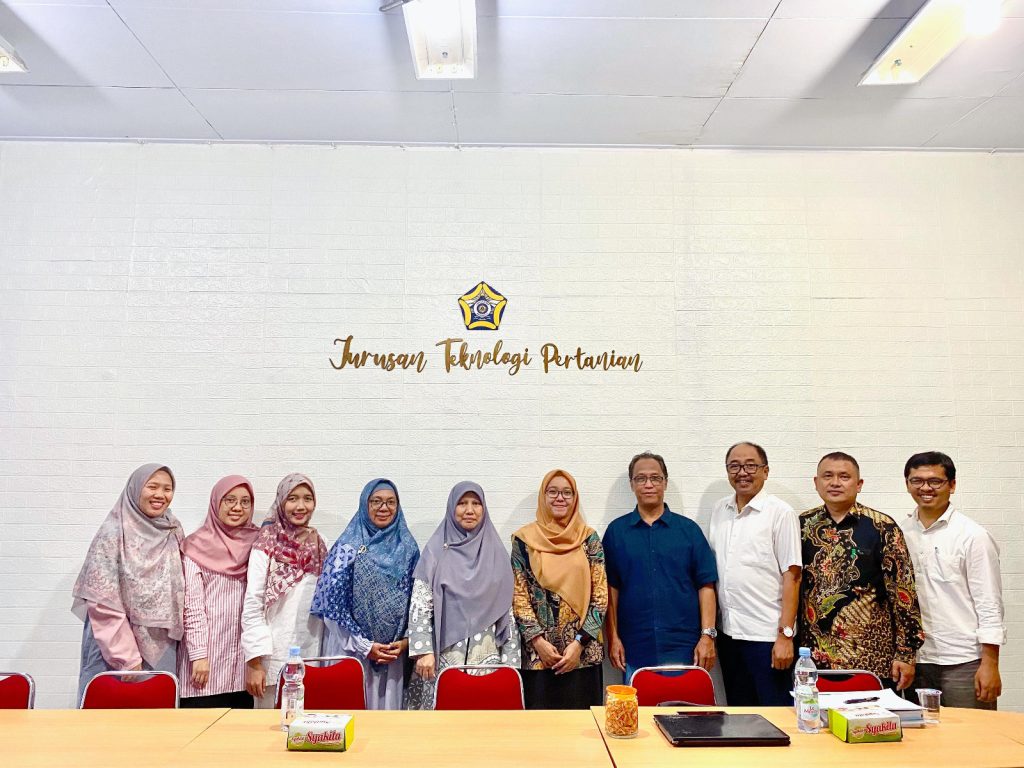
Implementation of Internal Quality Audit (AMI) Performance 2022 Agricultural Industry Technology Study Program, University of Bengkulu
On Monday, November 27, 2023, AMI or Internal Quality Audit of the 2022 Performance of the Agricultural Industry Technology Study Program, University of Bengkulu was held in the Meeting Room of the Department of Agricultural Technology from 14.00 to 16.00 WIB. The auditor team is Lisa Martiah Nila Puspita, SE., M.Si. (Head of Audit Team) and Debby Seftyarizki, S.T., M.T. (Member).

AMI is a systematic, independent and documented testing process to ensure the implementation of activities in higher education according to procedures and results are in accordance with standards to achieve institutional goals. AMI is one of the steps to determine the conformity of standards with the implementation that has been carried out in various aspects that have been determined. Internal Quality Audit: Audit conducted to determine the level of conformity of the implementation of activities to the organization’s own internal standards (Internal quality standards*), Regulations, Procedures, Work Instructions, in order to improve the quality of the institution and reduce the risk of non-achievement of standards / quality degradation.
AMI implementation requires good planning to ensure that all AMI components including policies, audit scope, auditors, time and place, and required documents have been properly prepared. The AMI process itself is carried out in two stages, namely System Audit and Compliance Audit. The results of both stages are then formulated in the AMI Report. This AMI report is then used by the Auditee to determine the steps to improve the SPMI formulated in the Management Review Meeting (RTM).
The objectives of AMI implementation can be described as follows:
Ensure that the implementation of SPMI meets standards/regulations. Through the search of existing evidence, AMI is carried out to ensure that the management system implemented by the Auditee institution is in accordance with or meets the standards that have been set and does not conflict with applicable laws and regulations.
Ensure the implementation of SPMI in accordance with standards/objectives/objectives. AMI is an independent, objective, planned and systematic activity, and based on a set of evidence to ensure that the goals and objectives of the program are met.
Evaluate the effectiveness of SPMI implementation. AMI is conducted by peer groups against units or institutions and/or programs or activities, by examining or investigating procedures, processes or mechanisms. Checking activities also means checking, matching, and verifying in order to evaluate the effectiveness of the SPMI application that has been prepared.
Identify SPMI improvement opportunities. AMI contains an element of consultation aimed at providing added value or improvement for the unit being audited, so that the unit can achieve or meet the objectives that have been set. Through AMI activities, improvement rooms are identified so that suggestions for quality improvement can be formulated in the future. In simple terms, it can be said that the purpose of AMI is to assist all Faculties/SPs/Study Programs/Institutions/Bureaus/Work Units within the University of Bengkulu, especially the Plant Protection Department in carrying out their duties to achieve predetermined standards effectively and responsibly.





